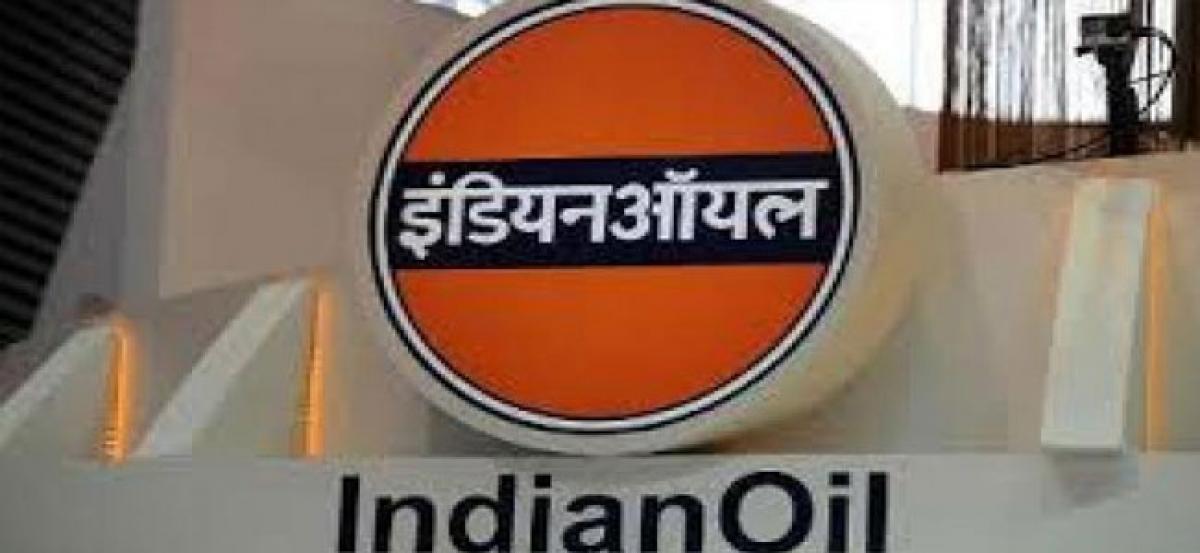Fitch says IOC's net debt levels to rise due to large capex

Fitch Ratings today it expects stateowned Indian Oil Corps IOC net debt levels to increase due to its large capital expenditure and investment plans in the medium term and affirmed a rating equivalent to Indias sovereign rating
Fitch expects IOC's capex to remain high to upgrade refineries to meet new emission standards.
New Delhi: Fitch Ratings today it expects state-owned Indian Oil Corp's (IOC) net debt levels to increase due to its large capital expenditure and investment plans in the medium term and affirmed a rating equivalent to India's sovereign rating.
The 'BBB-' rating with stable outlook "equalises the India-based company's rating with that of its largest shareholder, the State of India (BBB-/Stable), based on Fitch's Government-Related Entities (GRE) Rating Criteria," the rating agency said in a statement.
"Fitch expects IOC's capex to remain high to upgrade refineries to meet new emission standards (BS-VI) and to expand refining and petrochemical capacity, including the expansions currently underway. Fitch forecasts average capex of Rs 25,000-30,000 crore per annum over the next five to six years," it said.
IOC's financial profile, it said, is likely to remain moderate over the medium term due to its high capex and investment plans. Its financial profile has improved over the last couple of years with net leverage (net adjusted debt/operating EBITDAR) falling to 2.0x in the year ended March 2018 (FY18) from 2.7x in FY16 (FY17: 2.1x), mainly on account of higher gross refining margins (GRMs).
"We expect IOC's net debt levels to increase due to its large capex plans in the medium term. However, we believe IOC's credit metrics will remain comfortable with net leverage of around 2.5x over the next two to three years, provided its dividend outflow normalises from the high levels of the last two years," it said.
Fitch said it has assessed IOC's standalone profile at 'BB+' to reflect its dominant market position as the largest oil refining and marketing company (OMC) in India, the average-but-improving complexity of its refining assets and a moderate financial profile.
"High capex requirements are likely to keep free cash flows negative over the next few years," it said adding ut assesses IOC's status, ownership and control by the sovereign as 'strong'.
Fitch assesses the socio-political implications of a default by IOC as 'very strong'. A default would significantly affect the country's energy security given IOC's position as the largest OMC.
IOC, along with two other state-owned OMCs, imports a large share of crude oil - a default would jeopardise their ability to do so, resulting in disruptions to the economy, the statement said.
Fitch sees the financial implications of an IOC default as 'strong' as it is one of the key state-owned borrowers in India and a financial default may have a strong impact on the availability and cost of financing options for the state and other GREs, it said.
IOC has 80.7 million tonnes per annum of refining capacity (33 per cent of the total in India). It operates 11 of the 23 refineries in the country. IOC also has a 49 per cent share of the country's crude and product pipeline (by length) and 44 per cent share in petroleum products with over 48,170 customer touch points.
Fitch said IOC is exposed to the international crude-refining cycle as reflected in the volatility of its historical GRMs. However, the ongoing refinery upgrades are likely to lower the volatility impact over the medium term.
"We also expect IOC to benefit from strong demand for petroleum products in India over the medium term in light of its dominant market position," it said.
Petroleum-product consumption in India has increased strongly at a CAGR of 5.6 per cent from FY12 to FY17 and we expect growth to remain strong (around 5 per cent) over the medium term amid the prospect of robust GDP growth, it added. Also, IOC's refining asset quality is expected to improve from the planned upgrade and expansion, resulting in higher profitability and cash flows.
IOC's strong liquidity, Fitch said, is reflected in its large cash and equivalents of around Rs 11,600 crore (including Oil Marketing Companies GoI Special Bonds) as at end-FY18 against long-term debt maturities of around Rs 3,500 crore.
In addition, the company had large unutilised working capital limits of around Rs 8,000 crore as of end-FY18. IOC also enjoys ready access to domestic and international capital and banking markets.

